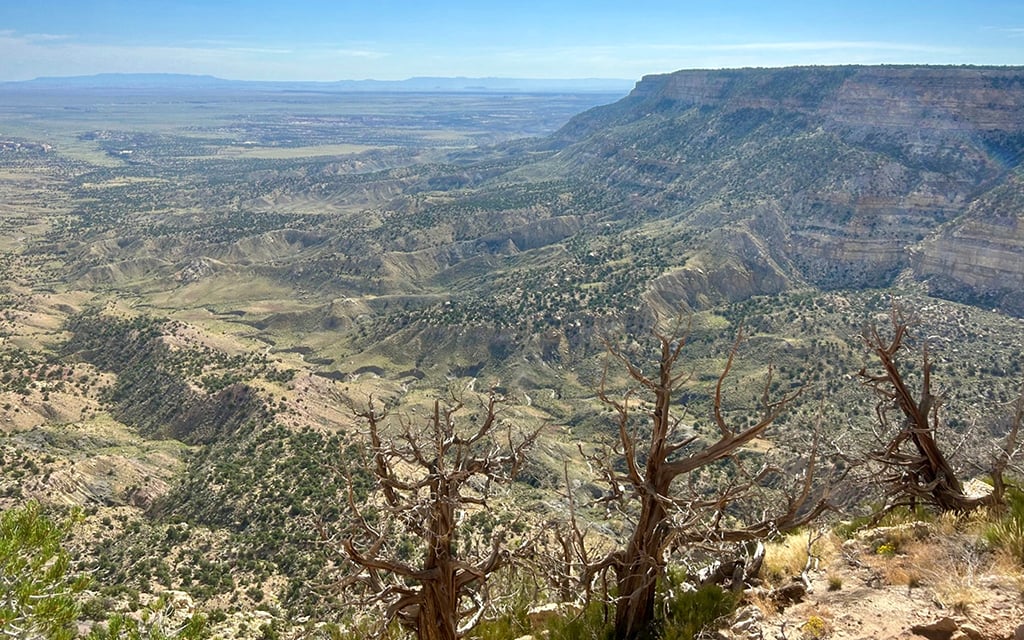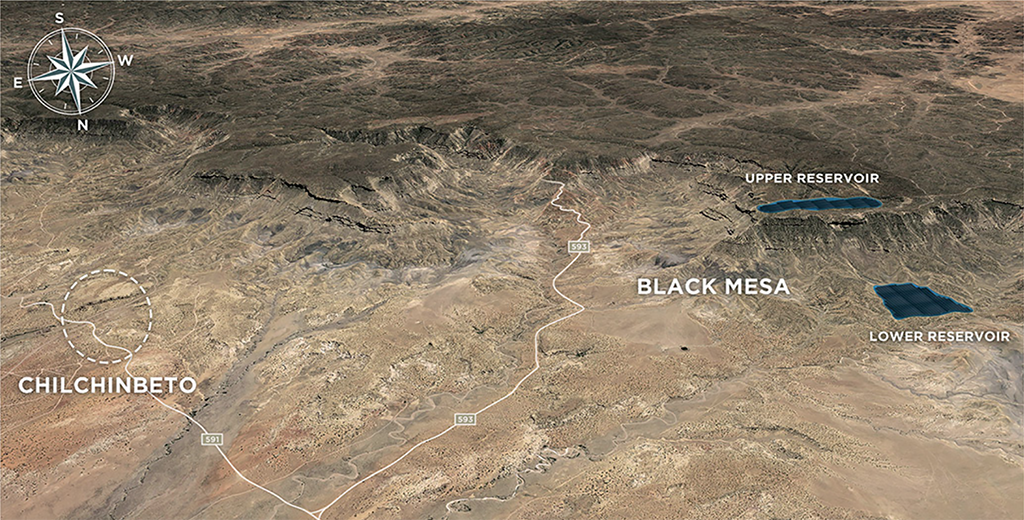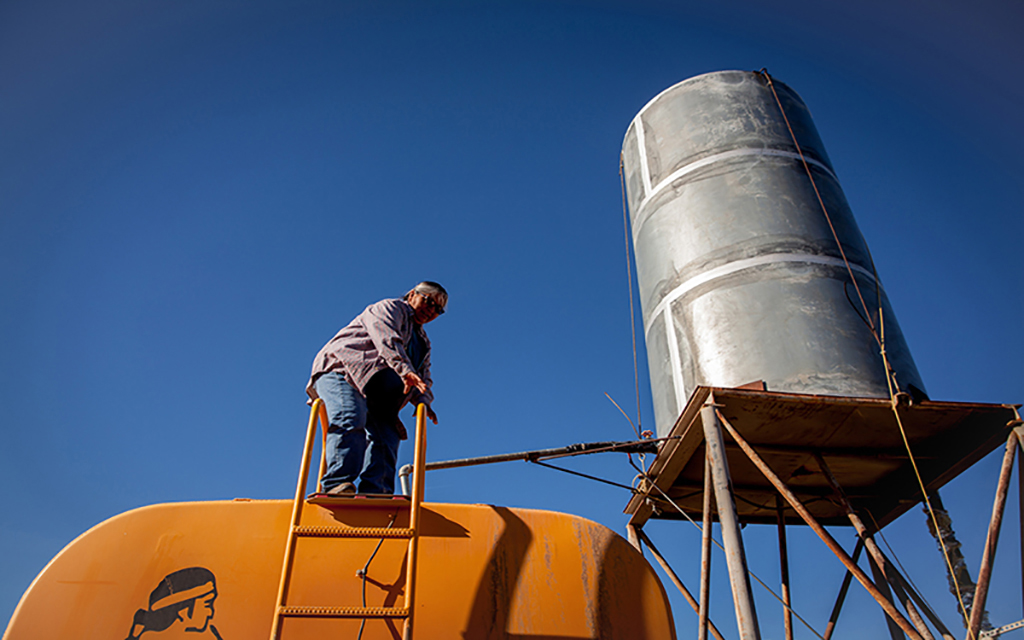
A view overlooking the rim of Black Mesa in September, where developers have proposed a pumped hydropower project. The Federal Energy Regulatory Commission on Thursday denied a permit for it and other similar projects on the Navajo Nation, saying developers failed to consult with tribes and local activists who had raised concerns about the projects. (File photo by Chris Clements/KSJD)
Federal energy officials took the unusual step of denying permits Thursday to several pumped hydropower projects proposed on the Navajo Nation, citing a new policy that gives tribes a greater voice in projects on their lands.
The tribe and environmental groups had urged the Federal Energy Regulatory Commission to deny applications for several of the pumped storage projects, saying they worried about the impact of the projects but had not been consulted by developers.
In the past, the FERC said, it would have given a preliminary OK to the projects while the debate continued, but that under a new policy it will no longer “issue preliminary permits for projects to use Tribal land if the Tribe on whose land the project is to be located opposes the project.”
Indigenous advocates and conservation groups hailed the move as a win for tribes.
“It is encouraging to see federal decision-makers honoring the trust responsibilities to Native American Tribes,” said a statement from Nicole Horseherder, executive director of the Navajo nonprofit Tó Nizhóní Ání, or Sacred Water Speaks.
“Historically, that has not been the case. These projects would have damaged vital groundwater sources that have already been harmed by 50 years of industrial overuse from coal mining,” Horseherder’s statement said.
The “pumped storage” hydropower projects under review use water stored at higher-elevation reservoirs that flows downhill through a turbine, generating electricity, before ending up in a lower reservoir. Then, when electricity demand is lower, that water is pumped back up to the upper reservoir to start the process over again.
Developers were seeking preliminary permits that would have allowed planning to proceed, but not construction, on seven projects. The FERC rejected them all: Three Black Mesa projects proposed near Kayenta by the hydropower company Nature and People First; one by the same company near Lukachukai; one by a New Mexico arm of that company, near Two Grey Hills, New Mexico; and two near Page by a company called Western Navajo Pumped Storage. All are on Navajo land.
People who live near the project sites worried that the project could damage underground water supplies and sacred lands, and said developers had not done enough to involve nearby residents.
There’s been an increase in hydropower projects across the U.S., including on different tribal reservations. But some advocates say tribes like the Navajo Nation are not being consulted enough about their development.
Heather Tanana, an attorney specializing in water policy and a member of the Navajo Nation, said the new FERC policy is consistent with the way the Biden administration has been interacting with Tribes, but still represents an improvement.
“I think it’s a huge testament to the work of local community efforts,” Tanana said. “They’re not representing the Navajo Nation as a governmental capacity. To have the communities be empowered in that way is new.
”Tribes have long been excluded from negotiations about access to water from the Colorado River. Thirty federally-recognized tribes use water from the river, and many are still calling for more inclusion in talks about how to divide its shrinking supply.
In June 2023, the Supreme Court ruled against the Navajo Nation in a case surrounding the tribe’s rights to the river. The tribe claimed it was the federal government’s legal duty to help figure out their future water needs, and aid them in accessing that water. But the justices said an 1868 treaty did not require the government to do so.
The recent decision to deny the hydropower projects comes on the heels of widespread opposition from nearby communities. In July 2023, environmental groups filed resolutions with FERC from 18 Navajo communities and agencies that opposed the Black Mesa projects.
“I think that was able to really help strengthen that argument from the Navajo Nation Department of Justice regarding the lack of community consultation and consent,” said Adrian Herder, a community organizer with Tó Nizhóní Ání.
Tanana said the FERC ruling does not mean the end of development proposals – including hydropower projects – on Navajo Nation, but it does represent a shift in how regulators decide whether they should go forward.
“I do think it’s fair to say that the community is in the driver’s seat now,” she said. “Unless they’re the ones pursuing development that they view as beneficial to their community, it’s going to be a lot harder to happen.”
-This story is part of ongoing coverage of the Colorado River, produced by KUNC and supported by the Walton Family Foundation.

